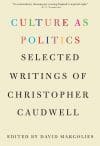Europe

Thoughts on the Transition between Modes of Production on the Occasion of the Marx Bicentennial
Revolution is still on the agenda for the global periphery. Restorations in the course of socialist transition are not irrevocable—and in the weak links of the center, breaks in the imperialist front are not inconceivable. | more…

The Struggle for Abortion Rights in Poland
In October 2016, cities across Poland were seized by massive demonstrations against proposals for a total ban on abortion. Whatever their ultimate outcome, the protests prove that mass mobilizations are possible in today’s Poland, and that the right’s political and cultural hegemony may yet be more fragile than it appears. | more…

The Marxian critique of political economy is inseparable from the “labor theory of value.” But what exactly does this theory mean? This article considers Marx’s value theory from five perspectives: as a monetary value theory, a theory of exploitation, a macro-monetary theory of capitalist production, a theory of individual prices, and a theory of crises. | more…

Considered by many to be the most innovative British Marxist writer of the twentieth century, Christopher Caudwell was killed in the Spanish Civil War at the age of 29. Although already a published writer of aeronautic texts and crime fiction, he was practically unknown to the public until reviews appeared of Illusion and Reality: A Study of the Sources of Poetry, which was published just after his death. A strikingly original study of poetry’s role, it explained in clear language how the organizing of emotion in society plays a part in social change and development. Culture as Politics introduces Caudwell’s work through his most accessible and relevant writing. Material will be drawn from Illusion and Reality, Studies in a Dying Culture and his essay, “Heredity and Development.” | more…

The experience of the British working class from the late nineteenth century to the current era of austerity illustrates that for labor, the welfare state is not just a mechanism to enhance the accumulation of capital or reinforce oppression. From the beginning, it was a vital part of the class struggle—and so it remains today. | more…

Sara Farris’s In the Name of Women’s Rights is a brave monograph that analyzes the way that the discourses of Europe’s right-wing nationalists, government agencies, and liberal feminists converge in their representations of Muslim and non-western immigrant women, relegating these communities to commodified spheres of social reproductive work. | more…

For years, intellectuals have argued that, with the triumph of capitalist, liberal democracy, the Western World has reached “the end of history.” Recently, however, there has been a rise of authoritarian politics in many countries. Concepts of post-democracy, anti-politics, and the like are gaining currency in theoretical and political debate. Now that capitalist democracies are facing seismic and systemic challenges, it becomes increasingly important to investigate not only the inherent antagonism between liberalism and the democratic process, but also socialism. Is socialism an enemy of democracy? Could socialism develop, expand, even enhance democracy? | more…

The Radical Historians of U.S. Empire
In the early years of the Cold War, the academic study of international relations was an ideological tool serving the foreign policy of the United States and its allies. But in the 1960s, a new generation of scholars began to challenge the reigning orthodoxy. | more…

Forthcoming in November 2018
This is the first volume of the autobiography of Samir Amin, who, born in Cairo in 1931, became a world-renowned Marxist economist, intellectual, and revolutionary. | more…

The present Russia panic follows an entire century of fearmongering and “threat inflation,” dating to the Russian Revolution, that has long served the interests of the U.S. military-industrial complex and security state. It has had little to do with either Russian or American realities, which have been consistently distorted. | more…

Class Conflict and Public Housing in Britain
Class conflict, from both below and above, has long shaped the history of housing in Britain. These struggles continue today, as the ravages of neoliberalism have forced public housing once again onto the agenda in the United Kingdom. | more…

From 1972 to 1989, an obscure sect of Danish Maoists developed a unique synthesis of orthodox Marxism-Leninism, theories of imperialism and unequal exchange, and legal and illegal practice that distinguishes it from any other group then active in Europe or North America. | more…











